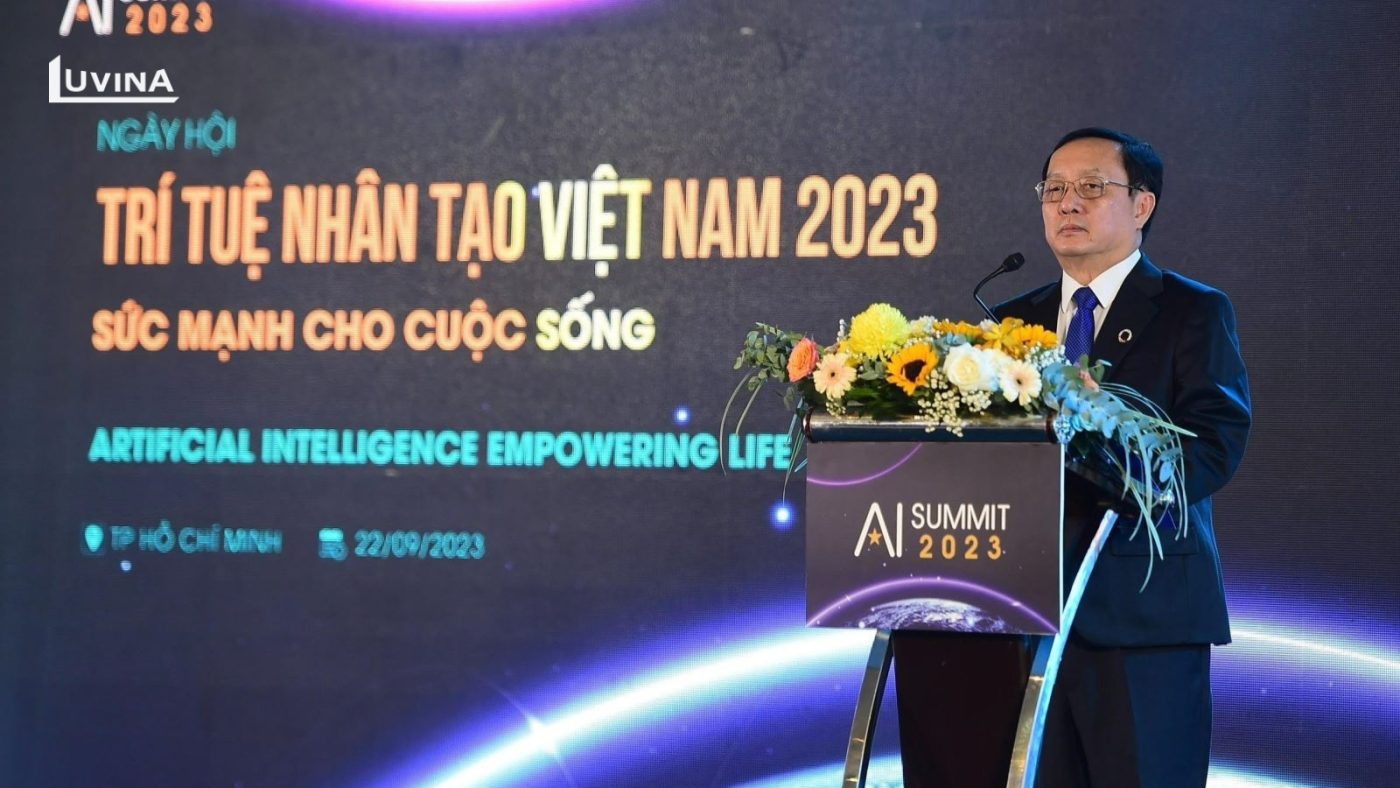By 2024, it’s projected that 50% of software engineers in Vietnam will transition to the AI and semiconductor sectors. This movement is expected to be fueled by the country’s strategic investments in these cutting-edge disciplines as well as the rising need for innovative technology.
Why is AI captivating Vietnam’s IT talent?
1. High Demand for Skilled Talent
Booming AI and Semiconductor Industries
The AI and semiconductor industries are experiencing unprecedented growth, driven by their expanding applications and critical roles in technological advancement. AI technologies are increasingly being integrated across diverse sectors such as manufacturing, healthcare, finance, and retail. A few instances that are easy to spot include: AI is used in the retail business for consumer insights, inventory management, and tailored marketing, and in the financial sector for fraud detection, risk management, and customer service automation.
Similarly, the semiconductor industry is essential for developing the advanced electronics and technologies that power modern life. Semiconductors are the backbone of various high-tech devices, from smartphones and laptops to advanced medical equipment and autonomous vehicles.

AI applications are expanding across diverse sectors, such as healthcare, finance, manufacturing, and retail.
Growing Workforce Needs
As these industries continue to expand, the demand for skilled talent in AI and semiconductors is skyrocketing. This surge in demand is prompting a significant workforce reallocation in Vietnam, with many software engineers transitioning from traditional IT roles to specialized positions in AI and semiconductor sectors. Companies are actively seeking professionals with expertise in machine learning, data science, computer vision, and chip design to meet the growing needs of these industries. This shift not only addresses the talent shortage but also positions Vietnam as a key player in the global tech landscape.
2. Government Support and Incentives
Strategic Focus
The Vietnamese government plays a pivotal role in the country’s transition towards AI and semiconductor industries by heavily investing in these sectors. Recognizing the immense potential and economic benefits, the government has launched numerous strategic programs to foster growth and innovation. These initiatives are designed to create a robust ecosystem that supports the development of AI and semiconductor technologies, positioning Vietnam as a competitive player in the global market.

The Vietnamese government is heavily investing in the AI and semiconductor sectors to foster growth and innovation.
Enhanced Training Programs
Central to the government’s strategy is the enhancement of training programs to equip engineers with the necessary skills to excel in high-tech fields. The government is collaborating with universities, technical institutes, and industry leaders to update curricula and develop specialized courses in AI and semiconductor technologies. These programs cover a wide range of topics, including machine learning, data analytics, computer vision, chip design, and advanced manufacturing techniques.
Moreover, the government is providing scholarships, grants, and financial incentives to encourage students and professionals to pursue careers in these sectors. By investing in education and workforce development, the government aims to create a highly skilled talent pool that can drive innovation and technological advancement. Additionally, partnerships with international institutions and companies are being established to bring global expertise and best practices to Vietnam, further enhancing the quality of training and education.
3. Attractive Compensation and Career Growth
Competitive Salaries
Engineers specializing in AI and semiconductors can expect significantly higher salaries compared to traditional software roles. This salary boost is driven by the competitive demand for specialized talent in these advanced fields. Companies are willing to offer lucrative compensation packages to attract and retain skilled professionals who can drive innovation and maintain a competitive edge in the market. As a result, engineers in these sectors often enjoy a higher standard of living and financial stability.

Engineers in the AI and semiconductor sectors enjoy competitive salaries and promising career growth.
Career Advancement
The AI and semiconductor industries offer substantial growth prospects, presenting engineers with opportunities to engage in innovative and groundbreaking projects. These sectors are at the forefront of technological advancement, continuously pushing the boundaries of what is possible. As engineers work on cutting-edge technologies, they gain valuable experience and expertise that enhance their career trajectories.
Additionally, the fast-paced nature of these industries means that there are frequent opportunities for promotion and professional development. Engineers can advance to senior roles, lead significant projects, or even transition into executive positions. The emphasis on continuous learning and adaptation in these sectors ensures that professionals remain relevant and highly skilled, further boosting their career prospects.
Overall, the combination of attractive compensation and promising career growth makes the AI and semiconductor industries highly appealing to IT professionals in Vietnam.
4. Smooth Transition for Software Engineers
Core Skill Alignment
Software engineers inherently possess fundamental skills in programming, problem-solving, and logical thinking, which are directly transferable to AI and semiconductor roles. The core competencies required in traditional software development, such as writing efficient code, debugging, and understanding complex algorithms, form the backbone of AI and semiconductor development as well. Similarly, the logical thinking and problem-solving skills that software engineers develop through years of coding and project management are crucial for designing and optimizing semiconductor technologies. For instance, the knowledge of programming languages like Python, C++, and Java, which are commonly used in software engineering, is also extensively utilized in AI development.

Core skills in programming and problem-solving align well with AI and semiconductor roles.
Adaptability
Software engineers, accustomed to this fast-paced environment, have developed a keen ability to stay updated with the latest trends and incorporate new skills into their repertoire. This adaptability is particularly beneficial when moving into AI and semiconductor roles. For example, understanding machine learning algorithms and data structures in AI requires a learning curve, but software engineers’ backgrounds in complex problem-solving and algorithm development equip them to grasp these concepts more quickly. Similarly, learning the intricacies of semiconductor design and fabrication processes becomes manageable due to their strong analytical skills and technical knowledge.
Moreover, the collaborative nature of software engineering, where engineers often work in cross-functional teams, prepares them well for the interdisciplinary nature of AI and semiconductor projects. Their experience in agile methodologies, project management, and teamwork is invaluable in these advanced fields, where collaboration across various specialties is essential for innovation and success.
Impact and Changes
1. Immense Potential for Career Advancement and Industry Innovation
The transition of software engineers into AI and semiconductor fields brings substantial benefits, fostering both individual career growth and industry-wide advancements. Professionals in these sectors have the opportunity to work on groundbreaking projects, contribute to significant technological innovations, and command higher salaries. This shift not only elevates their careers but also drives progress in AI and semiconductor industries, leading to the development of cutting-edge technologies and solutions.
2. Challenges Ahead
Potential Shortage in Traditional Software Roles
As a significant number of software engineers transition to AI and semiconductor fields, traditional software roles may experience a noticeable shortage of skilled professionals. This shift could lead to increased competition among companies vying for the remaining talent, driving up recruitment costs and potentially slowing down projects that rely on conventional software engineering expertise. Organizations might need to devise strategic approaches to attract and retain software engineers, including offering competitive salaries, providing career development opportunities, and fostering a positive work environment.

Need for Specialized Training
Supporting this transition requires comprehensive and specialized training programs tailored to AI and semiconductor skills. Current educational and professional development systems must evolve to meet this demand. Training initiatives should focus on:
– Technical Skills: Courses and workshops on machine learning, neural networks, data science, chip design, and fabrication processes.
– Practical Applications: Hands-on projects and real-world scenarios that allow engineers to apply their knowledge in practical settings.
– Continuous Learning: Encouraging a culture of continuous learning and upskilling to keep pace with rapid technological advancements.
Educational institutions, industry associations, and tech companies must collaborate to develop and deliver these training programs, ensuring that engineers are well-equipped to transition smoothly and excel in their new roles.
Conclusion
The transition to AI and semiconductors marks a pivotal advancement for professionals in high-tech industries, reflecting the evolving technology landscape and underscoring the growing importance of specialized skills in driving innovation. Engineers embracing this shift can work on projects revolutionizing sectors like healthcare, manufacturing, etc.
However, this change necessitates adaptability and proactive strategies from businesses. Companies must invest in continuous training and foster a culture of innovation to equip their workforce with the necessary skills for these emerging fields. This shift could also lead to a potential shortage of software engineers in traditional sectors, making recruitment more competitive and requiring robust talent acquisition and retention strategies. Ultimately, businesses that stay ahead of these changes and invest in their human capital can leverage emerging technologies to drive sustained success and maintain a competitive edge.









Read More From Us?
Sign up for our newsletter
Read More From Us?
Sign up for our newsletter